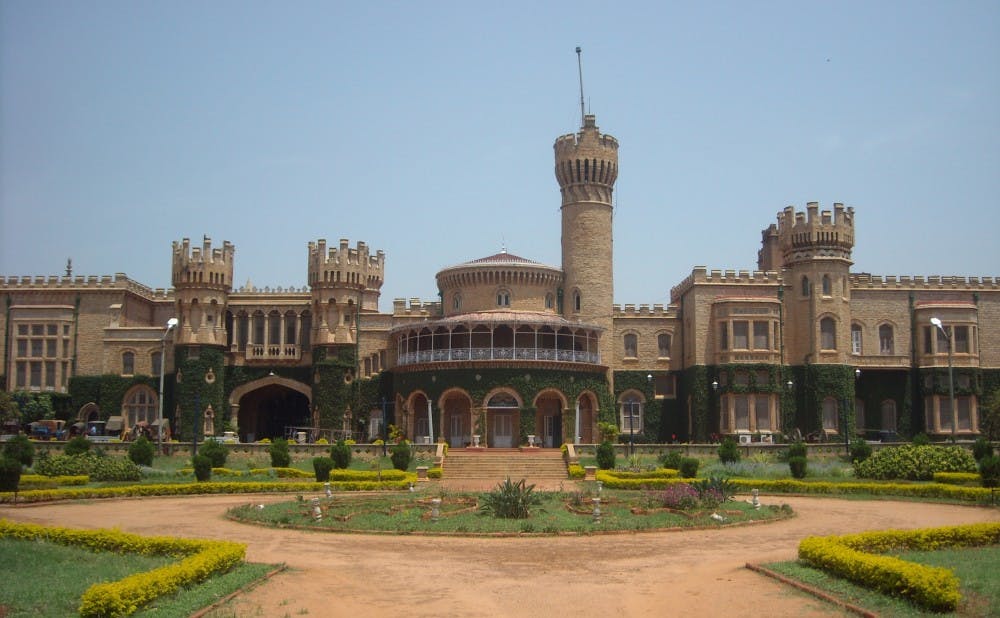When it comes to property rule in Bangalore, India, the law is quite murky, American University professor Malini Ranganathan told the audience at a talk last Thursday.
Ranganathan, an assistant professor in the School of International Service, spoke about her studies on the ethical, ecological and political concerns related to property rule in Bangalore. Unlike cities in the United States, Bangalore operates under a pluralistic system of property ownership.
In the past, many people of low-income backgrounds settled in the wetlands, marshes and lakes—areas that were considered wasteland belonging to the state, she said. Because the property was state-owned, the settlers had no authorized ownership.
She added that revenue inspectors turned a blind eye to these residents' property taxes. By doing so, these lower-level bureaucrats regulated and legitimized the residents’ claim to these “elicit” properties. Often, the government would forcefully evict these residents and demolish their homes in order to create more capital real estate.
"Arbitrary sanctioning of some claims but not others has really upscaled in the millennium in the hope of investor-friendly policy which dispossessed slums that, until recently, were authorized slums," she said.
Ranganathan cited a time the government dispossessed residents of a 30-year-old slum and hurled their belongings onto the street in order to accommodate a real estate firm that paid to build a mall in the area.
She then described how this usurpation of wetlands by the government was also making the city “ecologically risky” and causing severe health issues for the locals. As wetland ecologies were ruined by leveling the land, flooding and water contamination problems intensified.
The residents complained of more and more frequent flooding, and also of the increasing health problems they experienced, Ranganathan added. Central among their complaints was dengue fever in the summertime due to the lowered water quality. To make matters worse, the government began periodically demolishing these “elicit” homes in the name of improving the flooding that they had a hand in causing, she said.
Ranganathan also stressed that the definition of "authorized" and "unauthorized" is a political affair—one that is creating a caste hierarchy in “violent and racialized" ways. Although those who are government officials and have government connections or possess cultural or political capital are deemed worthy of property rights, she explained, the poor are thrown onto the streets of an increasingly unstable ecological environment.
She described how inhumane practices of cities are rewarded in the market age. For example, she argued that the government takes advantage of what property is considered authorized and unauthorized based on the land they need to accommodate corporate interests.
Ranganathan pointed out that the law claims to be in the realms of ethics, but what is illegal might actually be what is ethical. She said she believes that there was no criminality involved in the poorer families moving onto the unoccupied land. They settled where they could out of need whereas government officials “legally” reclaimed land out of the greed prevailing in this market oriented political economy.
"Perhaps it is time we move from a legal framework to an ethical framework," she said.
Audience members expressed their enjoyment of Ranganathan's talk.
“Professor Ranganathan did a great job of speaking to people of many disciplines," said Sarah Nolan, a third-year public policy Ph.D. student. "It was a great forum for people across a lot of different backgrounds to share their insights."
Similarly, Apoorva Sahay, a master of environmental management student at the Nicholas School of Environment, agreed that Ranganathan incorporated a variety of perspectives to understand the particular environment.
“She brought a new lens to understanding modern cities in India and other places,” he said.
Get The Chronicle straight to your inbox
Signup for our weekly newsletter. Cancel at any time.

